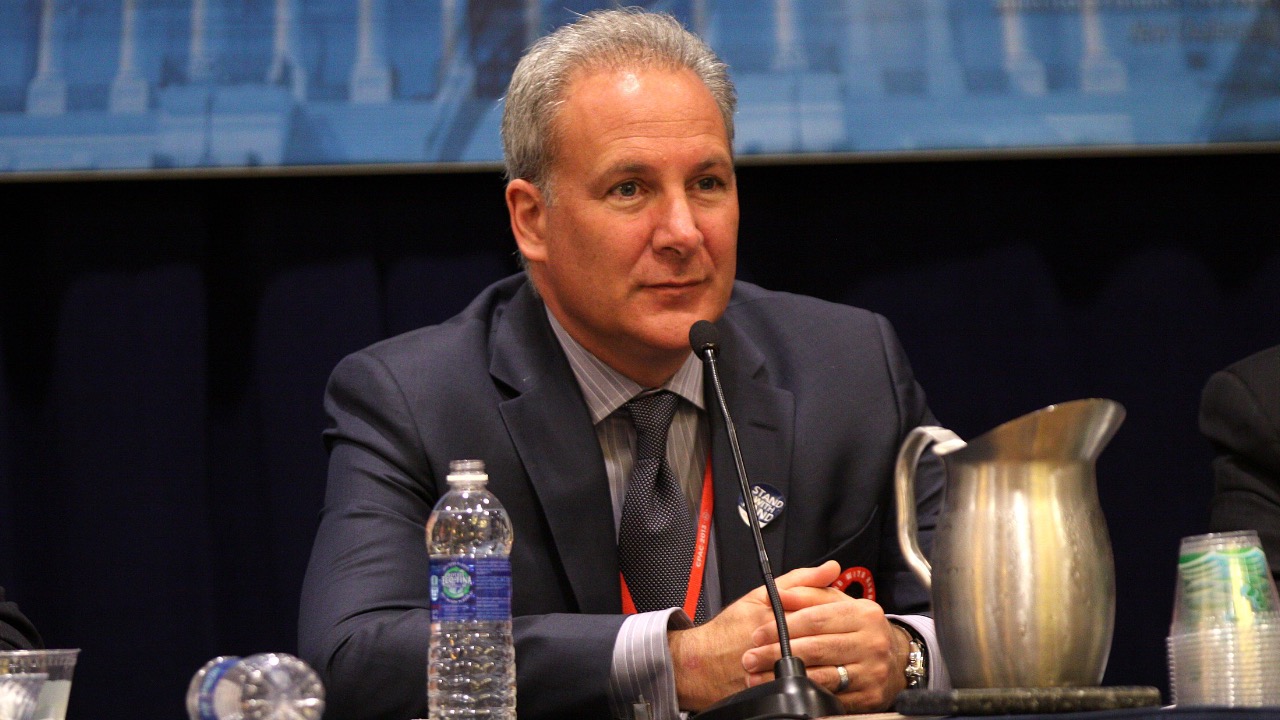[ad_1]

Euro Pacific Capital CEO Peter Schiff is now training his guns on Grayscale Trust’s GBTC after the validation of his regular anti-bitcoin rhetoric was cut short by a resurgent crypto market. After rapidly falling to around $16,500 on November 26, BTC quickly recovered before it went on to set a new all-time high of $19,864 on November 30, 2020.
Schiff Alleges a Conspiracy
Realising that his long-standing rhetoric against BTC is not bearing fruit, Schiff now accuses Grayscale of fueling the bitcoin bubble through its paid for commercials on CNBC. Schiff claims the adverts are intended to “pump bitcoin to investors.”
The Euro Pacific Capital CEO then details how CNBC is supposedly colluding with pro-bitcoin analysts to help the cause of the digital asset. Explaining the conspiracy, Schiff alleges that after receiving the payments for the advertisements, “CNBC then returns the favour by constantly featuring pro-Bitcoin guests on-air, who make pie-in-the-sky price forecasts.”
Furthermore, Schiff, in his December 1 Twitter thread, claims CNBC is keeping “bitcoin skeptics off its air.” Despite the bold accusations, Schiff does not say if he himself or any known critic has been denied air time by that media outlet.
Still, continuing his allegations against Grayscale, Schiff claims:
This constant one-sided pumping results in GBTC trading at a large premium to its NAV, allowing Grayscale to create new shares of GBTC that it promptly sells into the market for an instant profit.
According to Schiff, the proceeds from the sale of new shares are then used to “buy even more BTC in the market (thus) putting additional upward pressure on bitcoin’s price.” At the same time, the profit earned from the sale of Grayscale shares is then used to fund more commercials, alleges Schiff.
GBTC Speculators
Schiff, who seems to relish attacks from bitcoiners, insists Grayscale’s “pumping” of BTC will come to halt once “GBTC speculators want out and GBTC shares will (then) trade at a discount.” According to this theory, when Grayscale stops issuing new shares, it means the investment company will also stop buying the digital asset on the market as well.

Schiff (perhaps naively) assumes that Grayscale is the sole large buyer on the market. Indeed, Grayscale has been accumulating BTC in the past few months as institutional investor interest in BTC surges. Recently, a $5 billion investment fund manager, Guggenheim Macro Opportunities Fund revealed its intentions to invest nearly $500 million in the digital asset via GBTC.
Shrinking BTC Supply and Price
However, Schiff’s assumption seems to be debunked by reports that other institutional investors and high net worth individuals are also buying BTC. According to Bitcointreausuries, a site that keeps tracks of public companies that hold bitcoin, over 800,000 BTC or 4% of the total circulating supply is in the hands of public companies. Many of these new holders are attracted to the digital asset’s status as a digital form of gold, a fact that infuriates Schiff.
Therefore, as more institutional investors add BTC to their liquid reserves, this has the effect of shrinking the circulating supply. This in turn adds upward pressure on the price of BTC which is now likely to set another all-time high in the next few months or even weeks. It is clear that if this happens Schiff will tweet more attacks on BTC and organisations that embrace the digital asset. However, if BTC reverses most of the gains made in 2020, Schiff will be a vindicated man.
What do you think of Peter Schiff’s claims that Grayscale is helping to fuel a bitcoin bubble? Tell us what you think in the comments section below.
Image Credits: Shutterstock, Pixabay, Wiki Commons, Gage Skidmore
[ad_2]
Source link



